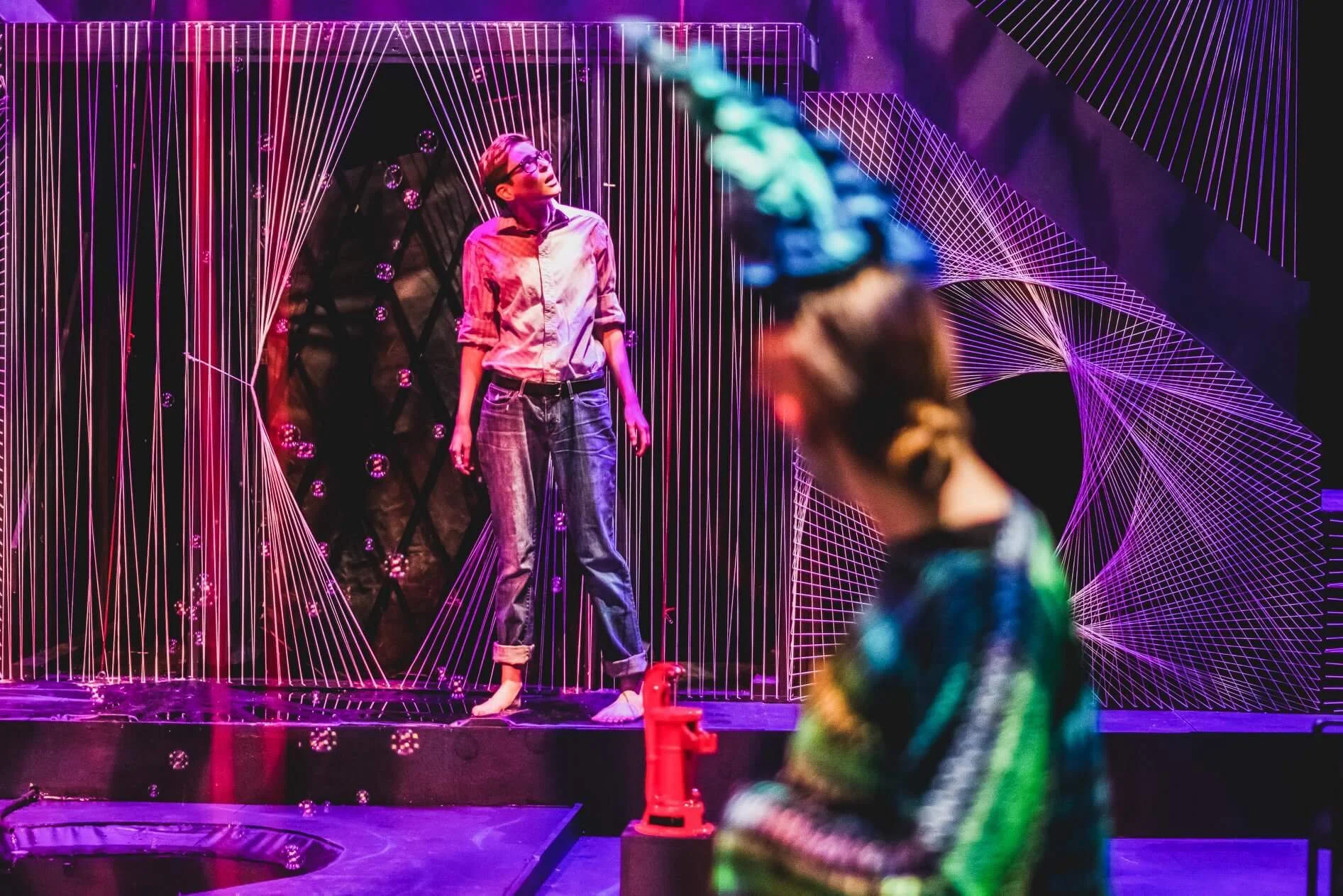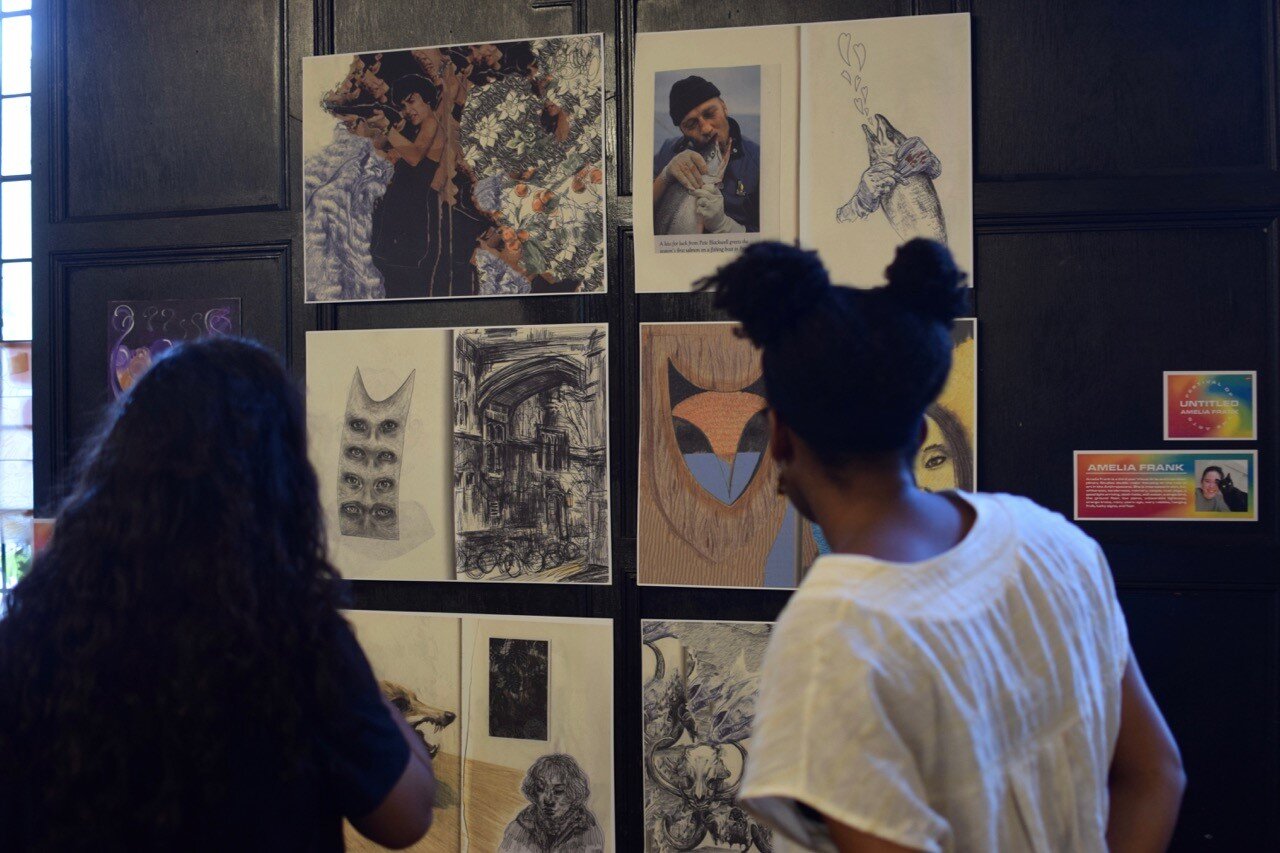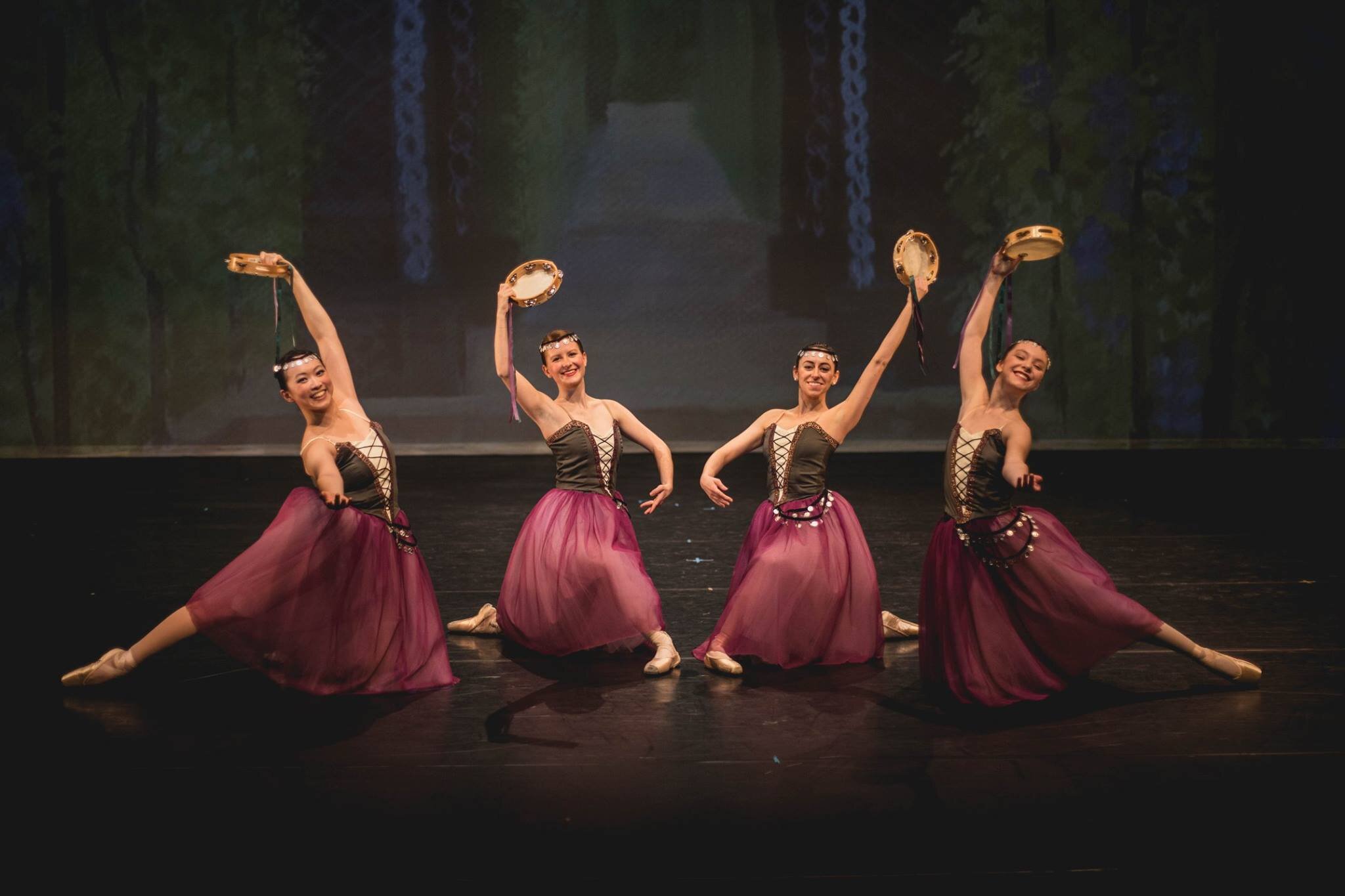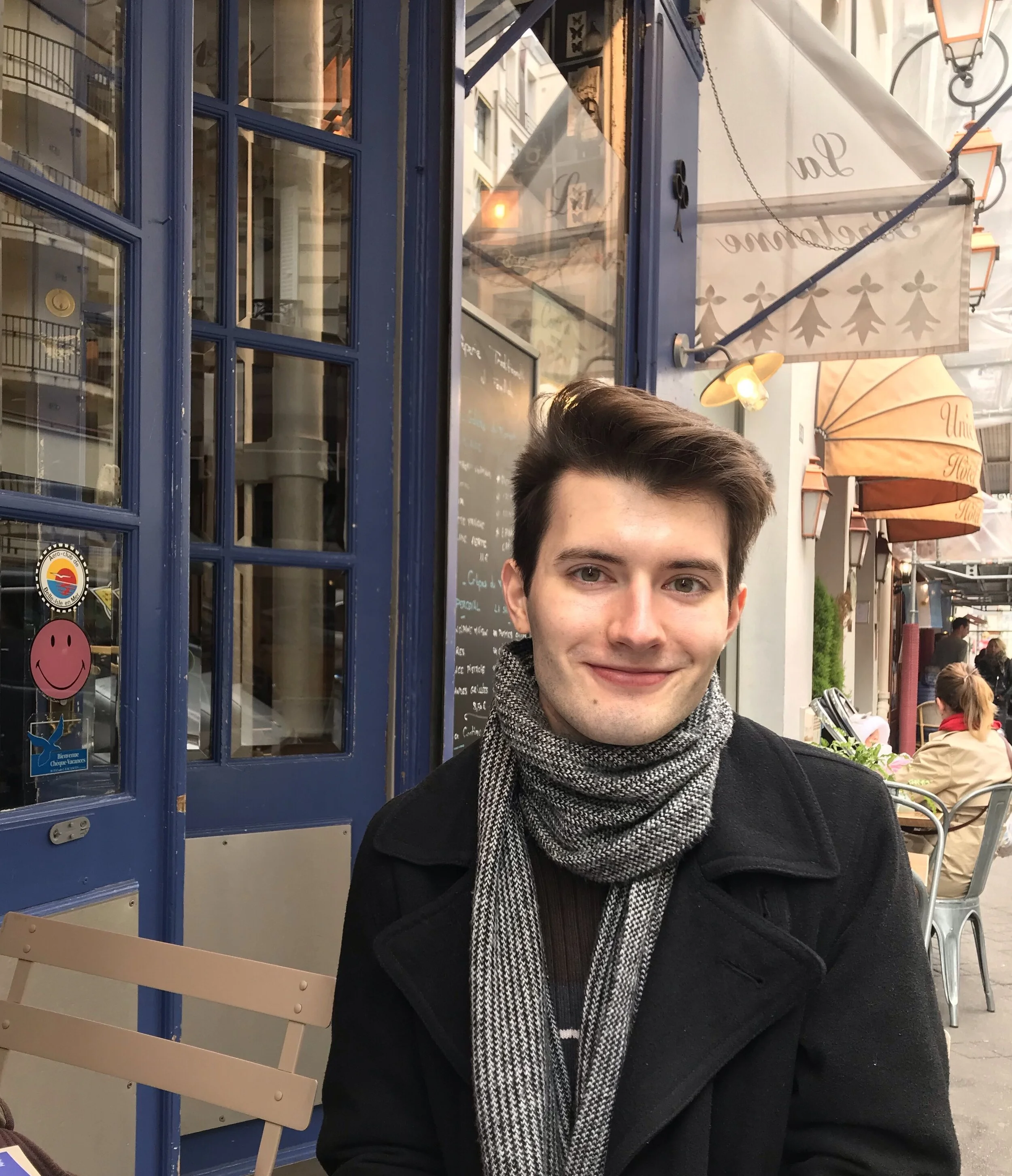What's Your Passion? There's an RSO for That!
by Alexandra Fiorentino-Swinton
From ballet to Beyoncé and still life to Shakespeare, UChicago is a hotbed for artistic freedom and diversity. The University is known for its rigor and academic excellence, but the campus thrives with opportunity for interdisciplinary discovery. Varying in intensity and commitment, Registered Student Organizations (RSOs) provide opportunities for students to pursue a dream, let out their creativity, build job skills, or just have fun.
UChicago’s philosophy encourages students to extend their pursuit of knowledge and interests beyond the classroom. The Core Curriculum is based on the idea that before students go out into the world, there are aspects of foundational disciplines that we need to learn and appreciate in order to be well rounded world citizens. RSOs reflect this idea, and the vast majority of students invest their free time and energy into several of them throughout their college careers.
Whether you’re not quite ready to let go of your favorite high school hobby or you want to try something completely new as you discover yourself, there’s a space for you in the UChicago art scene.
UChicago Arts spoke to six upperclassmen to hear about their experiences in the arts across campus.
Meet Gaby, President of a cappella group Medusa
4th year in the College, Comparative Human Development major and Comparative Race and Ethnic Studies minor
When did you start singing and why did you decide to pursue a cappella in college?
I’ve been singing in choirs since 5th grade, and when I went to high school I found out that there was an a cappella group. I was really interesting in auditioning but had never performed by myself in front of people before. I was a freshman, and so when I went into the audition space, I was so petrified that I literally told everyone to turn around in their chairs and close their eyes. I sang my song, they loved it, and I was in it for four years. I ended up becoming the president/music director, so when I came to college, I thought I obviously must audition. Once I graduate I’d like to work either at a production company for film and television or within the music industry somewhere. I write, sing, and perform my own music, so we’ll see.
What have been your favorite performances?
“Giving Them WhatThey Love” by Janelle Monae. That is a song I have a solo on and it makes me feel so good to sing it. It’s full of power. And “Hymn for the Weekend” by Coldplay and Beyoncé. For a while, we did a lot of soloist songs and arrangements, and then we shifted to more group-performed songs where there’s more of a give and take, which I love because it showcases everyone's sound. My favorite performances are the smaller ones—the mini concerts—where we get to collaborate with other groups and hear what they’re doing. I think it builds a really good community dynamic. You want to be friends with people in college, and a good way is to sing with them!
What lessons, skills, or virtues has being in Medusa taught you?
I have learned a lot about seeing, listening and hearing people, and the distinctions between those three things—especially as a leader in the group. You have to do all three. I’ve learned to delegate, which has been mighty helpful. And making sure everyone feels safe and comfortable, but also making sure that you yourself feel the same way. And that goes for any RSO, class, and just in life.
Meet Belen, editor of literary magazine Sliced Bread
4th year in the College, English and Creative Writing major
What are some of your favorite literary works?
My favorite books are the Lord of the Rings series because they have a really nostalgic place in my heart. Recently, I’ve become a big fan of science fiction and speculative fiction, such as the works of Margaret Atwood and Octavia Butler—I’ve become a big fan of strong female takes on the genre. That’s what I’m writing my BA on: this science fiction series by Octavia Butler, who is a really influential African-American woman science fiction writer, which wasn’t all that common during the time when she was writing. This series does a lot of bizarre things and trope subversion with science fiction and superpowers, so I’m exploring that.
What is your favorite thing about Sliced Bread?
I love the workshopping process—if there is a piece we think is good but isn’t quite there yet, we workshop it. What workshopping means is that we have a wonderful group of people called the Author Outreach Committee, and they assign somebody on the committee to meet with the author and talk through our critiques of their work, and that’s usually a two-to-four week process. I submitted a piece that was put through the workshop process and I loved it. It feels really supportive, and people want your piece to improve, which means they care and they’re paying attention.
How has being involved with Sliced Bread influenced your creativity?
Sliced Bread has helped me better analyze or appreciate art, especially visual art because I had zero background in looking at it or photography. During every meeting someone will point out something that I never would have thought of. Now I’ve started looking at those things in terms of composition. We have so many people on staff that are so good at that. I definitely think that Sliced Bread has helped me broaden my perspective about art in general. People who don’t usually do art or writing come together and talk about it. We try to get people who aren’t just English and Creative Writing majors to be on staff—we’ve got econ and STEM majors, and I like to think it’s a great creative outlet for them. You get to see the breadth of talent at this university.
Meet Katherine, president of University Ballet
4th year in the College, Biology and History, Philosophy and Social Science of Medicine double major
What has been one of your favorite experiences in UBallet?
I always say I peaked with my very first show here—I danced a Russian dance which was a lot of fun, and then five weeks before the performance the director emailed me and asked me to step in for another role because the dancer had dropped out, and the role was one of my favorites growing up. It was one of the big swans in Swan Lake, one of my favorite ballets. UBallet is a lot more professional than I originally thought it would be coming in. I really enjoy the performance aspect and it really gave me the opportunity to perform dream ballet roles that I never thought I would have the chance to do.
How do you balance your dancing with your schoolwork?
That’s been kind of a struggle for me, especially last year since taking on a leadership role. I think it’s a good alternative to school, because it works a different part of my brain than being in the library and studying. Even though it does take a big part of my life, it’s nice to get up for a few hours and move around and then come home and I’m more focused. I definitely find that sometimes I spend too much of my time doing UBallet, so this year I’m trying to delegate more tasks to underclassmen. Plus, once I’m gone someone will have to take my place and I don’t want them to go through a hard learning curve.
Do you have any tips for prospective student artists?
Don’t let academics rule your entire life. Just because you’re at this school that doesn’t have a formalized dance program doesn’t mean you have to stop dancing! In high school, I was such a hermit and I never hung out because I was always at school, ballet, or doing homework. At the end of the day you won’t remember the midnight hours in the Reg, you’ll remember things like your house dim sum trip in autumn quarter of your first year.
Meet Kuba, executive director of the Festival of the Arts (FOTA)
4th year in the College, English and Geographical Sciences double major
Where did your journey with the art world begin?
It actually began in theater. When I was in high school, I worked as part of the set design and construction crew. I was never actually onstage so much as just doing the moving parts backstage. That’s kind of the way that I’ve stuck, having more of an administrative or organizational backstage role to let the front stage creative people do their thing. I entered FOTA as an events coordinator. I was looking for more ways to be around the arts but I’m not so much a visual creator myself. It’s a lot of fun because I get to interact with a lot of people who are more in the visual arts world and in performing arts.
What is your favorite event that FOTA has ever put on?
I think my favorite show was about this time last year, called Late Night Latte, and the basic idea was that it would be late at night and we were going to be serving Pumpkin Spice Lattes. For that one we ended up going with a bit of a wicker theme, with baskets and plastic leaves and a bit of a fall theme, and electric candles. If we can’t create a cohesive theme by the visual artworks because we’re trying to keep the door open for everybody, we can create that through the props or food that we provide. We don’t enter every quarter thinking “this is the exact theme or vibe we want” for our show, we just set the logistical framework like when and where it’ll be, how many artists we can accept, and how much money we have to allocate. We don’t want to pigeonhole artists into a specific theme or specific topic because we want to see what they are creating and what they want to do. We’re then tasked with looking at all the different creations and seeing if we can cluster them within the gallery space so that some are in conversation with others.
How has being involved in FOTA opened up your artistic expression?
FOTA has shown me the variety and diversity of media, because, as someone who doesn’t have a strong background in visual art or art history, I was very much imagining classic oil painting, charcoal, sketching, still life, and stuff like that. As these past three years have unfolded, I’ve realized that there’s a wealth of different media that people use creatively. We’ve had everything from fashion artists to woodwork to digital art. At the university we have so many people that are so creative in their own disciplines and they transfer that creativity, knowledge, and technical expertise into a consumable art experience in a way that I never would have expected. It’s shown me that there are so many different directions that one can go in. I hadn’t thought of myself as an artist, but over these past three years I’ve realized that there are many different definitions and maybe one of those will fit me.
Meet Jenny, a dancer in Maya dance group
3rd year in the College, Economics and Philosophy double major
Why did you decide to join Maya?
I started dancing like any other baby, in dance class, and kept with it. I was classically trained in ballet, pointe, and did a lot of ballets like Nutcracker and Swan Lake up until high school. I went to boarding school for high school and they only had modern dance, and I fell in love with it. Maya has actually historically done South Asian dance, but in the past few years, we’ve transitioned away from that to do more hip hop, modern, and contemporary. It shows the fluidity of the group because as the dancers changed, the group just shifted to reflect the composition and style of dancers that they had. I wanted to join Maya because it’s such a unique group of dancers that are so passionate about dance and talented in their own different ways.
What is something that you’ve learned from your involvement in Maya?
With modern and hip hop especially, people are really self-conscious about the way that they look and worried that they look weird, but then I think you look weirder when you don’t put your heart in it. It’s only when you truly commit to what you’re doing that you look your best, and I think that can be translated to a lot of things that you do in life. I also learned that you can be a role model to other dancers without having to have the title of director or any leadership title. Our directors are amazing, but I’ve been thinking about how, as an upperclassman, I can be a role model to the younger dancers without these titles.
How does dancing enrich the rest of your life?
I think it forces you to look at things in different ways, and there’s a couple ways in which that happens. When you’re dancing someone else’s choreography, you’re trying to capture whatever essence that they put into the piece, but you’re also trying to turn it into something that you’re doing with your body. But when you’re the choreographer, you’re creating something out of thin air. Working over a quarter and seeing my ideas actually become realized in other people’s movement is pretty astounding to me every time I see it. But I think above all, dance has been great for me because it’s a space where I can reconnect with my own body and disconnect with all the stress going on in daily life, and in that way it promotes the free flow of your creativity. Dance for me is more of an outlet for meditation. I don’t really consider it as another club commitment that I have to go to that takes away from my time relaxing or schoolwork.I think it’s an opportunity and a space for me to relax.
Meet Katie, a member of University Theater Committee
4th year in the College, Theater and Performance Studies and French double major
Which aspects of theater are you involved in?
I’m mostly an actor but I’ve done a tad of directing and scenic work in the past. I’ve been doing a lot of Shakespeare since I got to UChicago. I used to be super scared of Shakespeare but I’ve found the Dean’s Men to be a really welcoming group and now I think I’ve done more mainstage performances with them than with any other group. I also love realist theater, like The Aliens by Annie Baker. The show is just beautiful and the world that the designers created was just so intimate and moving and stepping onto that set and working with those people felt like a different world. I guess the point of realist theater is to be a reflection or as close as we can reproduce of our own world.
What is your favorite part of being involved in theater?
There’s a song in Kiss Me Kate about how shows are always a disaster until the last second, and that’s just what theater is. Two weeks out there’s always that moment of “we don’t know our lines and we don’t know the costume changes and the lighting isn’t working yet and we haven’t even gotten into our space yet and what are the entrances or exits!” I think that the cue-to-cue rehearsal is the first time everything gets pulled together because you get the whole company together, cast and crew. That’s my favorite thing about theater, that everything makes sense only once you have everybody doing their job in the same space.
What has being a part of the University Theater community taught you?
UT has three pillars: artistic excellence, opportunity, and education, and that’s something the Committee tries to take into account when we choose the shows for each season, and it’s something directors strive for in their shows. I really like the pillar of education, because it makes us consider how we’re supporting and teaching each other. I came in to college panicked about what people were thinking about me at every moment of every day, and now I have a lot of really close friends who don’t care about whatever weird stuff I do next, they’re with me and we have a lot of unique personalities. No matter what, you’ll find your niche. Being on stage more and doing different types of theater I didn’t think I would is bolstering in that way. I feel a sense of confidence in that I’ve found a place on campus where I can do my art and meet my people and be accepted and I’m going to be ok moving into the theater scene after college, professionally.
These interviews have been edited and condensed for clarity.










